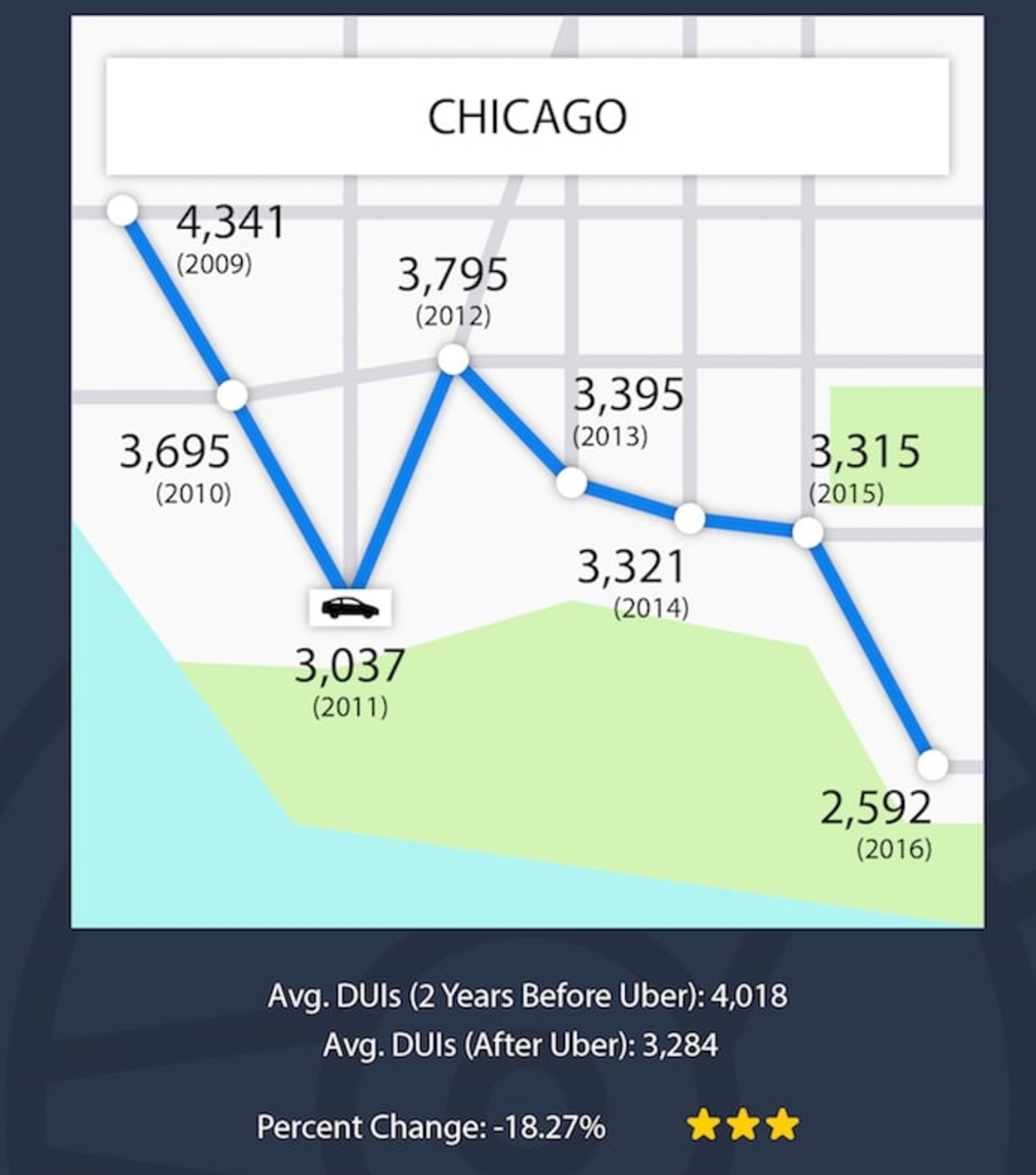Studies have shown that ride-hailing services like Uber and Lyft are making traffic congestion worse and contributing to a decrease in transit ridership in American cities, which is why the city of Chicago recently implemented a new tax on ride-share to fund CTA infrastructure. But one definite benefit of the rise of ride-hailing is that the services make it easier to go out on the town without taking a private car, which helps people avoid intoxicated driving on their way home.
A study recently commissioned by Moll Law Group attempted to quantify whether there was a reduction in DUI arrests in ten major cities in conjunction with the launch of ride-share. These included Chicago, San Francisco, Seattle, Denver, Philadelphia, San Diego, Sacramento, San Jose, Los Angeles, and Las Vegas. The report compared the average number of DUI arrests two years before Uber launched in these cities to the average number during subsequent years and found that the number decreased in all of the cities.
Las Vegas and San Diego had the largest decreases, 37 percent and 26 percent, respectively. Most of the cities have seen a fairly steady decline in arrests since before Uber launched, which may be attributable to a number of factors, including the possibility of decreased DUI enforcement by police. Therefore, it’s not entirely clear whether ride-sharing has accelerated the decrease in arrests.
For what it’s worth, Chicago has seen a significant drop in DUI arrests in recent years. In the two years before Uber debuted here in September 2011, the average number of arrests per year was 4,018, according to Chicago Police Department data. From 2011 to 2016, the average number of arrests declined to 3,284 per year, an 18 percent dip.
But, again, correlation is not causation, so it’s not certain that the decrease in Chicago DUI arrests can be attributed to ride-sharing. In fact, the number of arrests actually spiked in the year after Uber appeared on the scene, increasing from 3,037 in 2011 to 3,795 in 2012, before dropping continuously over the next four years to 2,592.
While the study doesn’t conclusively prove that ride-hailing deserves credit reducing drunk driving, it does suggest that -- as one might expect -- the technology may be contributing to a reduction in DUI arrests in Chicago and across the country.




